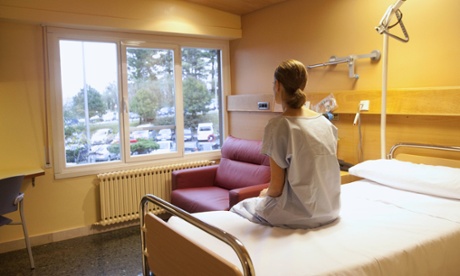
“I couldn’t go to the doctor any more because I didn’t want to be touched. I didn’t want to be in a crowd [and] it affected my relationships, but the biggest thing it affected was my perception of my body and my body image. I felt terrible.”
Student nurse Pavan Amara, now 27, was raped as a teenager. It turned her life upside down and took her a very long time to come to terms with, she says. Even after she felt she had begun to “get everything back together”, she realised it still deeply affected her. Her relationship with her body, for instance, had changed dramatically. “I felt I was really abnormal for feeling that way,” she says. “I couldn’t look in the mirror or at photos of myself.”
She started to look for support, “typing ‘rape, body image, can’t go to doctor’ into Google,” she says, with a wry laugh – but found few useful results. So Amara contacted 30 other women in a similar position – some she already knew, through organisations such as Rape Crisis, and others she reached out to on social media – and asked to interview them to discuss how they felt about sex, body image and healthcare. To her surprise, she was far from alone. “Every single woman said it seriously affected how she felt about her body.”
So, last August, she set up My Body Back, a project that supports women who have experienced sexual violence, focusing particularly on issues of body image and sexuality, helping them to reclaim their bodies as their own.
Many said it had a huge impact on their sex life – several had vomited after sex because they were so tense, others had blacked out. Just like Amara, some described avoiding mirrors, and half said that, despite wanting to, they hadn’t felt able to attend screenings for cervical cancer or sexually transmitted infections. “They just couldn’t have somebody touch them. They were triggered badly by it, so they felt it was a choice between their mental health and their physical health.” One woman summed it up perfectly, Amara recalls: “She said that her rapist had taken away so much from her and now he was taking her health, too.”
With simple, bold pragmatism, Amara took steps to tackle the problem. She began by talking to NHS doctors and nurses, Rape Crisis volunteers and staff at Sh!, the only female-focused sex shop in the UK. The NHS staff she spoke to were already aware of the problem: “They had patients who refused cervical screening or didn’t want to be touched – but there was nowhere to refer them to, so they were being lost in the system. Often there would be a disclosure from a woman, and the doctor or nurse wouldn’t have a solution to offer and wouldn’t see the woman again because she wouldn’t feel supported enough to come back.”
Initially, Amara tackled the psychological side of the problem, setting up a monthly trans-inclusive workshop called Café V, where women could come together in a safe space with trained volunteers to talk about their bodies, sex, and everything from masturbation to orgasm. At the most recent session, more than 40 women turned up.
Next, she enlisted students at 20 universities in a scheme called Notes of Love, where participants write a message of solidarity or support on a Post-it note for a woman who has experienced sexual violence. The notes are then passed on to Rape Crisis and Havens centres. “We wanted to change the culture on university campuses, where you often hear about misogyny and ‘lad-ism’,” she explains. “The other weekend we were talking about this at Cambridge … and there were lots of men there, which I found really encouraging. We talked about sexual assault and, afterwards, there were loads of men writing these notes and I thought, things are changing.”
Finally, Amara began working with staff at Barts Health NHS Trust and, this August in Whitechapel, east London, they will open the UK’s first cervical screening and STI clinic designed specifically for women who have experienced sexual violence. An introductory session with a sexual violence health adviser will be offered to discuss exactly how the appointment will run. The women can then dictate every detail, down to music or aromatherapy to help them relax, specific phrases they do or don’t want the healthcare practitioner to use, body positions they’d like to avoid – they can even decide whether they want to insert the speculum themselves. “It’s all about regaining control over what happens to your body,” says Amara.
The STI clinic will encourage women who are put off seeking a test after experiencing sexual violence because they don’t want to be touched, or are worried about being pressured into reporting to the police. Those who want to remain anonymous will be provided with a self-testing kit, a private space and a video guide on how to carry out the test correctly. The results can be texted to a mobile phone.
It is life-changing stuff. One testimony on the project’s website comes from a 39-year-old woman who has felt unable to have a smear test since she was raped 19 years ago: “I now have hope that perhaps one day I can come to your clinic and will manage to have one.” As Amara points out, her idea for the clinics is so simple that it’s extraordinary that they will be, to her knowledge, the first specialist services of their kind in the country. “It says a lot about how women are treated. Why has it taken this long?”
For more information about My Body Back and the clinics, visit mybodybackproject.com

